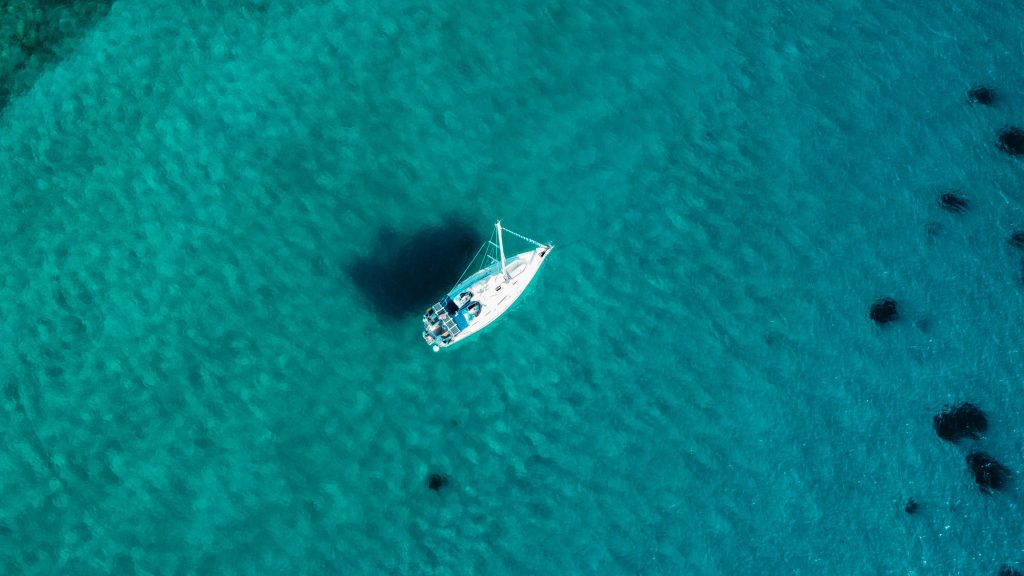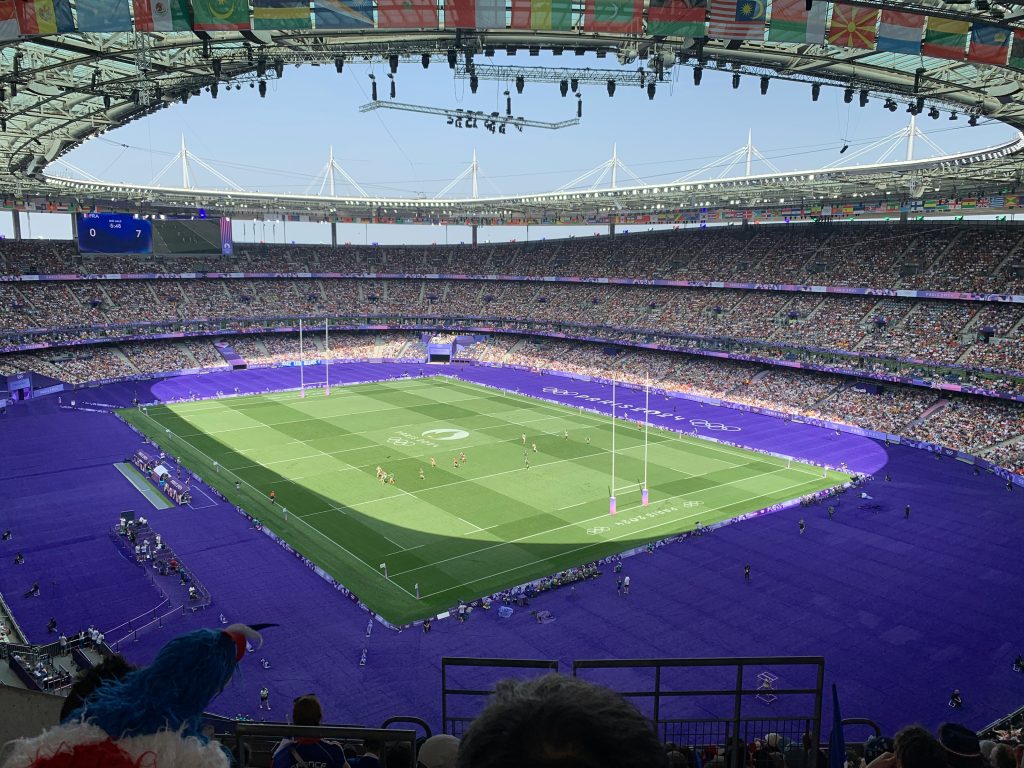Controversy Surrounds Paraguayan Swimmer Luana Alonso at Paris Olympics
In the midst of the 2024 Paris Olympics, Paraguayan swimmer Luana Alonso has found herself at the center of a swirling controversy that has sparked debates about athlete conduct and team dynamics. Alonso, who resides in Dallas and represents Paraguay in international swimming competitions, was reportedly expelled from the Olympic Village by the Paraguayan Olympic Committee due to claims that her presence was creating an ‘inappropriate atmosphere’ within the team.
The incident has raised eyebrows, particularly as Alonso has vehemently denied any allegations regarding her behavior. In a recent statement, she expressed her discontent with the way the situation has been portrayed, insisting that she was not removed from the Olympic Village and that the reports circulating in the media were misleading.
The head of the Paraguayan Olympic Committee, Larissa Schaerer, has been vocal about the committee’s stance, suggesting that Alonso’s conduct was detrimental to team morale and cohesion. However, the swimmer’s rebuttal suggests a disconnect between her experience and the committee’s claims, igniting discussions about the pressures athletes face and the scrutiny they endure during high-stakes events such as the Olympics.
With the Paris Games being a significant milestone for many athletes, Alonso’s situation highlights the challenges that can arise when personal and professional lives collide. As a young athlete, the 20-year-old had high hopes for her performance in the swimming events, but after failing to advance in her competitions, she now finds herself dealing with unexpected drama off the pool deck.
The narrative surrounding Alonso has shifted from one of athletic pursuit to a controversial saga that illustrates the complexities of Olympic life. Athletes are not only competing for medals but are also navigating the intricate dynamics of team relationships, media scrutiny, and the expectations of their home countries. The pressure to perform can sometimes lead to misunderstandings and conflicts, as seen in Alonso’s case.
While the specifics of the incident remain unclear and both parties continue to stand by their narratives, the impact of such controversies can be profound. They can overshadow an athlete’s achievements and create a lasting impression that lingers long after the Games are over. The focus on Alonso’s alleged behavior rather than her athletic capabilities raises questions about the media’s role in shaping public perception of athletes.
As the Paris Olympics continue, it remains to be seen how this situation will unfold. Will Alonso be able to reclaim her narrative and focus on her swimming career, or will this controversy define her Olympic experience? As athletes like Alonso strive for greatness, they must also contend with the realities of being in the public eye. The balance between personal conduct and professional expectations is delicate, and one misstep can lead to significant repercussions.
In conclusion, the story of Luana Alonso serves as a reminder of the pressures athletes face beyond competition. It prompts a broader conversation about the treatment of athletes within their teams and the importance of clear communication and support. As the Olympics progress, the sports community and fans alike will be watching closely to see how this story develops and what it means for the future of athletes navigating similar challenges.
Tags: Athlete Conduct, Controversy, Luana Alonso, Olympics, Team Dynamics
Olympic Swimmer Luana Alonso Disqualified from Paris 2024 for Inappropriate Behavior
In a surprising turn of events at the Paris 2024 Olympics, Paraguayan swimmer Luana Alonso has been removed from the athletes’ village following allegations of creating an ‘inappropriate environment’. The decision comes after reports surfaced that the 20-year-old swimmer had allegedly sneaked out to visit Disneyland during the Olympic tournament, raising eyebrows among her teammates and officials.
Alonso, who had been a promising figure in the swimming world, represented Paraguay on the international stage before her unexpected retirement from the sport after failing to qualify for the later rounds of the competition. The incident has sparked considerable debate around athlete conduct and the responsibilities that come with representing one’s country on such a prestigious platform.
The Olympic Games, known for their strict codes of conduct and emphasis on sportsmanship, have seen numerous controversies over the years. However, the case of Alonso stands out due to the circumstances surrounding her removal. Allegations of inappropriate behavior within the athletes’ village not only jeopardize the reputation of the individual athlete but also reflect on the team and the nation they represent.
As the Olympic spirit is built on discipline, dedication, and a sense of community among athletes, Alonso’s actions have raised questions about the pressures faced by young athletes in high-stakes environments. With the eyes of the world on them, the expectations for behavior and performance can be overwhelming, potentially leading to decisions that stray from the athlete’s usual conduct.
The incident has not only impacted Alonso’s Olympic journey but has also ignited discussions on the support systems available for athletes. Many believe that more robust guidance and mental health resources could help prevent such situations from occurring in the future. The International Olympic Committee (IOC) may need to reevaluate how they prepare and support athletes, especially those who are young and may not yet have the experience to navigate the complexities of the Olympic environment.
Despite her early exit from the competition, Alonso’s story is a reminder of the intense scrutiny athletes face and the importance of maintaining professionalism and focus. As the Olympics continue, the spotlight will inevitably shift to how the remaining athletes manage their time and adhere to the strict guidelines set forth by their respective teams.
In light of this incident, it remains to be seen how the Paraguayan swimming federation will address the situation and the impact it will have on future athletes representing the nation. The broader implications for the Olympic movement at large are also significant, as they must balance the celebration of athletic achievement with the need for accountability and ethical conduct.
As the Paris 2024 Olympics progress, the narrative surrounding Luana Alonso will likely serve as a cautionary tale for young athletes. It underscores the vital importance of responsibility, not only to oneself but also to teammates, coaches, and the wider athletic community.
As the Olympic Games aim to inspire unity and excellence among nations, the events surrounding Alonso’s disqualification remind us that the journey of an athlete is not just about competition but also about upholding the integrity of the sport. With this chapter now closed for Alonso, the focus will shift back to the pool, where other athletes continue to strive for glory, hopefully free from the pitfalls that led to her removal from the Olympic stage.
Tags: Athlete Conduct, Luana Alonso, Mental Health, Olympics


